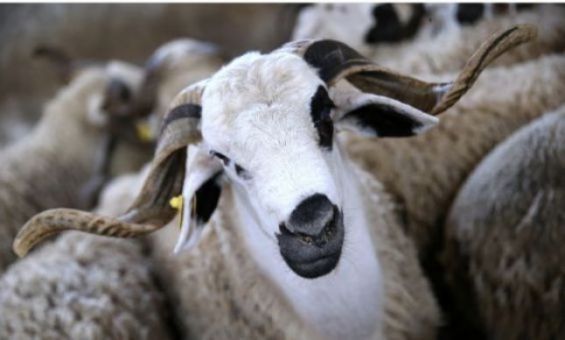Like any other economic sectors, sheep breeders have also been affected by the coronavirus health crisis. They told Yabiladi that they are caught between the devil and the blue sea. Struggling to afford the high prices of livestock feed due to the drought, breeders are faced with the dramatic drop in the prices of sheep, goats and cattle days before Eid Al Adha.
«Preparations for Eid Al Adha began before Ramadan but the health crisis has led to a significant drop in sheep sales», Mohamed Bouissa, member of the National Association of Sheep and Goat Breeders (ANEMC), told Yabiladi.
Containment, market closures and drought
«The closing of weekly markets due to Covid-19 has increased the suffering of breeders as they have found themselves forced to keep their herds, which meant more feed for the animals», Bouissa argued.
«Today, we are faced with a supply that greatly exceeds demand, which means that prices will continue to fall. I can't give a precise percentage, but what is certain is that the prices this year will be much lower than those of previous years».
For this ANEMC member, the good news is that «preparations are well underway today to prepare the markets for sale, so that the buying and selling process can take place within healthy conditions». «We hope that things will go well», he concluded.
For his part, Rachid, a breeder from Taza, fears «losses» this year. «We hope that the situation will improve as the Eid approaches, and we also hope that the decision to allow Moroccans living abroad to return to Morocco will have a positive impact on the resumption of livestock markets», he said.
The young man recalls that «the closing of weekly markets, the ban on parties and weddings, as well as the decline in the purchasing power of the citizen» remain the main causes of the drop in prices observed in recent days.
A decrease of 700 dirhams compared to last year
For his part, Al Miloudi, a breeder from the city of El Brouj recalls that «the buying and selling process was at a standstill during the last three months of lockdown». «You just have to take a little tour of the markets to discover the suffering of breeders», he said.
«The closure of markets and the drought are the reasons why farmers suffer and prices fall», argues Alaa El Assri, a herder from Ksar El Kebir.
«Sheep prices have fallen by 500 to 700 dirhams from what they were at the past year. In addition, the markets are experiencing weak demand due to the economic crisis».
Asked about cattle feed subsidized by the State, and set up to help farmers, El Assri recalls that «these feeds do not cover their needs». «In the region of Ksar El Kebir for example, each farmer received only one quintal of barley», he regreted.
Each year, Eid Al Adha presents itself as an opportunity to improve the financial income of thousands of farmers in Morocco, for whom cattle breeding is a major source of income. According to the Ministry of Agriculture, the average volume of commercial transactions during Eid Al Adha exceeds 12 billion dirhams, most of which is transferred to rural areas. This allows farmers to cover the expenses related to their activities and prepare for the next agricultural season.
It is worth mentioning that the director of food control at the National Office for Food Safety (ONSSA), Abdelghani Azzi confirmed, a few days ago, that the number of sheep and goats prepared should reach 8 million, bearing in mind that the demand does not exceed 4.5 million heads.





 chargement...
chargement...













